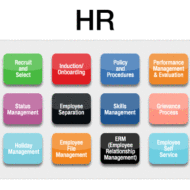Posted by Managementguru in Business Management, Strategy
on Feb 17th, 2014 | 0 comments

Corporate policy formulation What are Policies? Business activities should be based on some solid principles that serve as guidelines for direction. These principles are nothing but policies which help a business firm in attaining its goal. Policy does not tell a person exactly what to do, but it does point out the direction in which to go. While objectives are a goal or an end to be sought, policies are a general rule of action which helps in attaining a goal. Policy Statements Statements released by corporate firms generally highlight the major policies behind their action. For instance, if a firm says that, its aim is to provide the customers with products that are competitive in terms of quality, price, weight and contents, it tries to sum up the recurring problems in the industry and assures the customers that it will serve the customers in the true spirit of business. What is the meaning of Policy Formulation? Policies are generally formulated by the officials of the top management cadre, as policies reflect the mode of thought and principles underlying the activities of an organization. Policies guide a firm in the following aspects. Thinking Decision making Conduct of business Enterprise operations Problem solving So, it is evident that each policy contains two components, a “principle” and a “rule of action”. Corporate policies are statements of directions, guidance for corporate thinking, corporate behavior and action, and therefore cover a very broad area. Such policy formulations are made in the light of challenges posed from the external environment exposing the strengths and weaknesses of the organization. The Process of Policy Formulation Process of policy formulation – corporate management – Manu Melwin Joy from...


